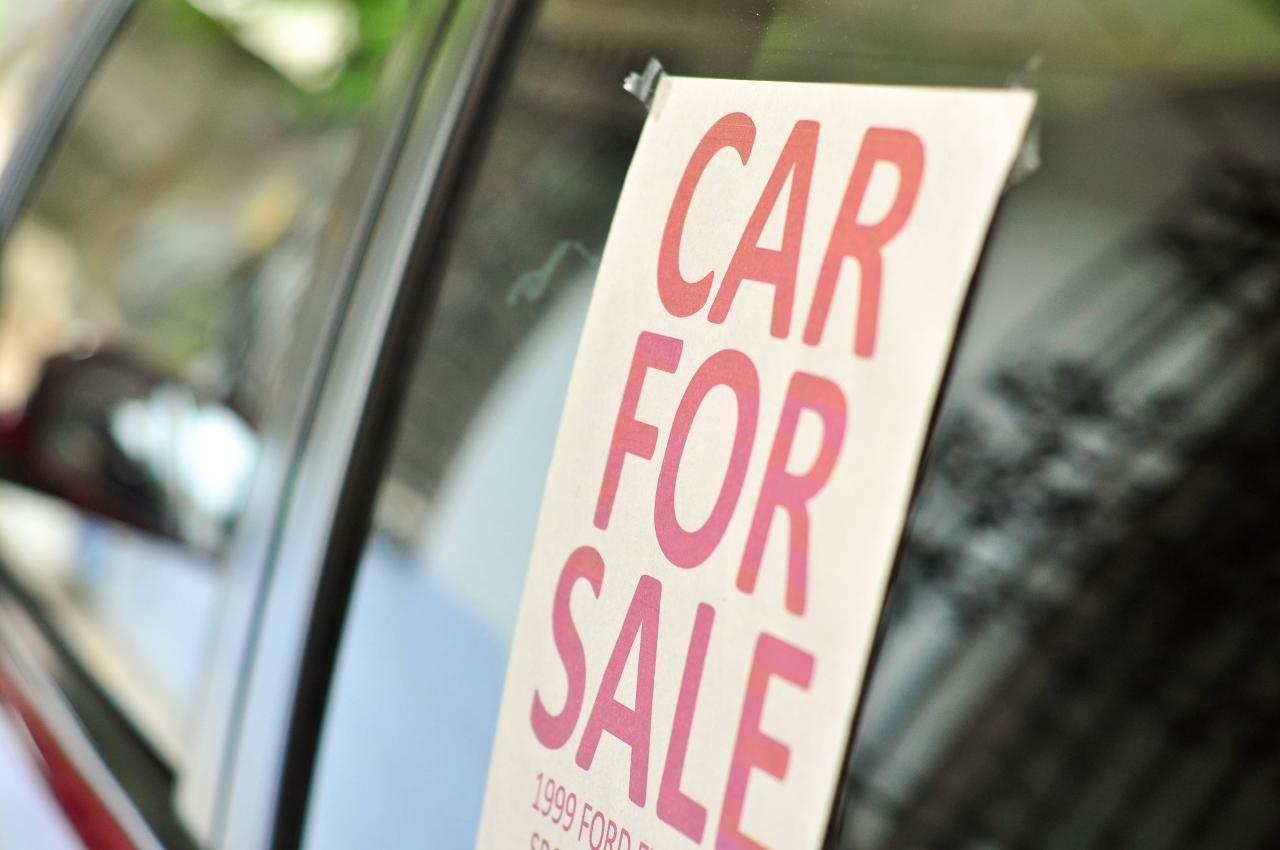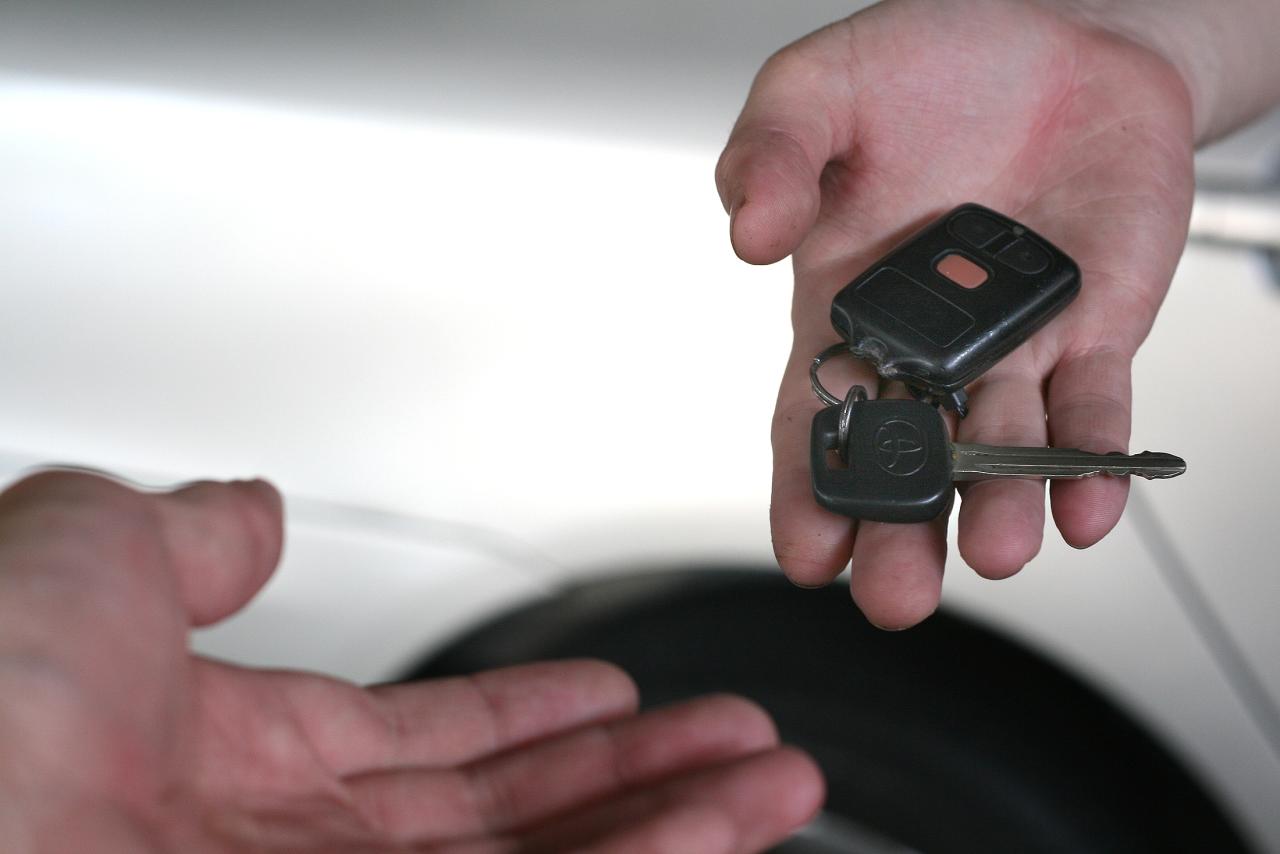Can I sell my personal vehicle to my business? This question opens a door to a complex world of legal, tax, and accounting considerations. Successfully navigating this transaction requires understanding the implications for your business structure, from sole proprietorship to LLC or corporation. Proper valuation, meticulous documentation, and adjusted insurance coverage are all critical components to ensure a smooth and compliant transfer. This guide will unravel the intricacies of selling your personal vehicle to your business, offering a clear path through the process.
We’ll explore the legal framework governing such transfers, detailing the necessary paperwork and title changes. The significant tax implications, including capital gains and depreciation, will be examined across various business structures. We’ll also delve into the accounting procedures, demonstrating how to record the sale and depreciate the asset accurately. Finally, we’ll cover crucial insurance adjustments and strategies for determining a fair market value for your vehicle.
Legal and Tax Implications
Transferring ownership of a personal vehicle to a business involves a nuanced legal and tax process. Understanding the implications is crucial for minimizing potential liabilities and maximizing tax advantages. The specifics vary significantly depending on the business structure and the vehicle’s value.
Legal Process of Vehicle Ownership Transfer
The legal process for transferring ownership from a personal entity to a business involves several steps. First, the individual must properly title the vehicle in the business’s name. This requires completing the necessary paperwork with the relevant state Department of Motor Vehicles (DMV), providing documentation establishing the business’s legal existence (e.g., articles of incorporation or LLC operating agreement), and paying any applicable transfer fees. Failure to properly transfer title can result in legal complications should accidents or other issues arise. The specifics of the required paperwork will vary by state. It’s recommended to consult with the DMV or seek legal advice to ensure compliance.
Tax Implications of Selling a Personal Vehicle to a Business
Selling a personal vehicle to your business has significant tax implications, primarily concerning capital gains tax and depreciation. The capital gains tax is calculated based on the difference between the vehicle’s sale price and its adjusted basis (original cost plus improvements, less depreciation taken if previously used personally). If the sale price exceeds the adjusted basis, a capital gains tax will apply. The applicable tax rate depends on the holding period and the taxpayer’s income bracket. Conversely, the business can deduct depreciation on the vehicle over its useful life, reducing its taxable income. This depreciation expense can offset the capital gains incurred by the individual.
Impact of Different Business Structures on Tax Treatment
The business structure significantly impacts the tax treatment of the transaction.
- Sole Proprietorship: The sale is treated as a personal transaction for tax purposes. Capital gains are reported on the owner’s personal income tax return. Depreciation is claimed as a deduction on the business’s Schedule C.
- LLC (Limited Liability Company): The tax treatment depends on the LLC’s tax classification. If it’s a disregarded entity (single-member LLC taxed as a sole proprietorship), the treatment is the same as above. If it’s a partnership or corporation, the sale is treated as a transaction between the owner and the LLC, with tax implications for both entities.
- Corporation: The sale is treated as a transaction between two separate entities. The individual reports capital gains, and the corporation records the purchase and claims depreciation. This can lead to more complex tax reporting and potentially higher overall taxes due to double taxation.
Hypothetical Scenario Illustrating Tax Benefits and Drawbacks
Let’s consider Sarah, who owns an LLC and sells her car (original cost: $25,000, current market value: $15,000) to her business. She has owned the car for five years. Assuming a capital gains tax rate of 15% and a depreciation schedule allowing $3,000 per year, the tax implications are as follows:
- Capital Gains Tax: Sarah has a loss of $10,000 ($15,000 – $25,000). No capital gains tax is owed.
- Depreciation: The business can deduct $15,000 ($3,000/year * 5 years) in depreciation over the vehicle’s useful life, reducing its taxable income.
However, if the car’s value was $20,000, Sarah would have a $5,000 capital gain, leading to a $750 capital gains tax ($5,000 * 15%). The business would still be able to depreciate the vehicle.
Tax Implications of Selling vs. Leasing
Selling the vehicle to the business allows for immediate depreciation deductions, while leasing results in periodic rental expense deductions. The optimal choice depends on the vehicle’s value, depreciation schedule, and the business’s overall tax situation. Selling might be preferable if the vehicle’s value is high and depreciation deductions are substantial, offsetting the capital gains tax. Leasing may be more advantageous for vehicles with lower values or when a business prefers predictable and consistent expense deductions. Careful financial modeling is essential to determine the most tax-efficient approach.
Accounting and Bookkeeping Procedures

Selling your personal vehicle to your business requires careful accounting to ensure accurate financial reporting and compliance with tax regulations. This process involves recording the transaction, depreciating the asset, and tracking related expenses. Proper bookkeeping is crucial for maintaining a clear financial picture of your business.
Accounting Entries for Vehicle Sale
The sale of a personal vehicle to a business is treated as an asset acquisition by the business and a capital transaction for the owner. The business records the purchase, while the owner reports a capital gain or loss on their personal tax return. The accounting entries will depend on the sale price and the vehicle’s original cost (if known). If the sale price exceeds the vehicle’s book value (original cost less accumulated depreciation, if any), the difference represents a gain. If the sale price is less than the book value, it’s a loss.
For example, if you sell your personal vehicle for $10,000 to your business, and its fair market value is also $10,000, the business would make the following entry:
Debit: Vehicle (Asset) $10,000
Credit: Cash $10,000
This entry increases the business’s assets (vehicle) and decreases its cash. The owner would report the $10,000 sale price on their personal tax return and calculate any capital gains or losses based on the vehicle’s original purchase price and any depreciation claimed previously. If the vehicle had a book value of $5000 prior to the sale, the business would record a gain of $5000. This gain would be reflected in the business’s financial statements, but it would not be recognized on the balance sheet itself.
Vehicle Depreciation
After the transfer, the vehicle is depreciated according to the applicable depreciation method and useful life. Common methods include straight-line depreciation and accelerated depreciation (like MACRS). Straight-line depreciation evenly spreads the cost over the asset’s useful life. The formula for straight-line depreciation is:
(Asset Cost – Salvage Value) / Useful Life
For example, if the vehicle has a useful life of 5 years and a salvage value of $2,000, the annual depreciation expense would be ($10,000 – $2,000) / 5 = $1,600. This expense would be recorded annually on the business’s income statement, reducing net income.
Handling the Transaction in Accounting Software
Most accounting software packages (like QuickBooks, Xero, or FreshBooks) allow you to record asset purchases and depreciation easily. The process generally involves:
1. Entering the purchase: Record the transaction as a debit to the vehicle asset account and a credit to the cash account.
2. Setting up depreciation: Specify the depreciation method, useful life, and salvage value. The software will automatically calculate and record the depreciation expense each period.
3. Tracking expenses: Categorize expenses related to the vehicle (fuel, repairs, insurance) under appropriate expense accounts.
Sample Balance Sheet Entry
A balance sheet entry reflecting the vehicle transfer would show an increase in the business’s assets (vehicles) and a decrease in cash. The specific accounts used might vary depending on your accounting system.
| Account Name | Debit | Credit |
|———————-|———–|———–|
| Vehicles | $10,000 | |
| Cash | | $10,000 |
Mileage and Expense Tracking, Can i sell my personal vehicle to my business
Accurate mileage tracking is essential for deducting vehicle expenses. Maintain a detailed log of business miles driven. You can use a mileage tracking app or a spreadsheet. Ensure that all expenses directly related to the vehicle’s use in the business are properly documented and categorized for tax purposes. This includes fuel, repairs, maintenance, insurance, and lease payments if applicable. This information will be used to calculate the depreciation expense and the allowable deductions for business use.
Valuation and Pricing Strategies: Can I Sell My Personal Vehicle To My Business

Selling a personal vehicle to your business requires a fair and accurate valuation to ensure both entities—the business and the owner—benefit from the transaction. This process involves understanding various valuation methods, considering influential factors, and selecting a suitable pricing strategy. Accurate valuation prevents potential tax complications and ensures the transaction aligns with generally accepted accounting principles.
Methods for Determining Fair Market Value
Several methods exist for determining the fair market value of a used vehicle. The most common approaches involve consulting pricing guides, comparing similar vehicles sold recently, and considering the vehicle’s condition and features. A professional appraisal may be beneficial for higher-value vehicles or those with unique characteristics.
Resources for Obtaining Accurate Vehicle Valuations
Several reliable resources provide vehicle valuation data. Websites like Kelley Blue Book (KBB) and Edmunds offer detailed valuations based on make, model, year, mileage, condition, and other relevant factors. These resources utilize extensive databases of sales data to generate accurate estimates. Additionally, consulting local dealerships or independent appraisers can provide personalized valuations based on a physical inspection of the vehicle. Auction results for similar vehicles can also offer valuable insights into market pricing.
Factors Influencing Vehicle Price
Several factors significantly influence a used vehicle’s price. These include the vehicle’s condition (including any damage or required repairs), mileage (lower mileage generally commands higher prices), market demand (popular models or those in high demand tend to hold their value better), features (additional features like navigation systems or sunroof increase value), and overall market conditions (economic factors can impact used car prices). The vehicle’s history, including accident reports and maintenance records, also plays a role.
Pricing Strategies: Fixed Price vs. Negotiation
Businesses can adopt various pricing strategies when selling a vehicle. A fixed price offers simplicity and transparency, eliminating negotiation. This approach is suitable when the seller has a clear understanding of the vehicle’s value and is less concerned with maximizing the sale price. Negotiation allows for flexibility and potentially higher sale prices, but it also requires more time and effort. The chosen strategy depends on the business’s objectives and the seller’s comfort level with negotiation.
Vehicle Valuation Factors
| Vehicle Feature | Impact on Value | Example | Valuation Method |
|---|---|---|---|
| Mileage | Lower mileage generally increases value | A car with 20,000 miles will be worth more than one with 100,000 miles, all else being equal. | KBB or Edmunds online valuation |
| Condition | Excellent condition commands higher prices; significant damage reduces value. | A car with minor scratches will be worth less than a pristine car of the same make, model, and mileage. | Professional appraisal or comparison to similar vehicles |
| Market Demand | High demand increases value; low demand decreases value. | A popular SUV model will likely hold its value better than a less-popular sedan. | Analysis of recent sales data from auction sites or online marketplaces. |
| Features | Additional features increase value | A car with leather seats, sunroof, and navigation system will command a higher price than a base model. | Comparison to similarly equipped vehicles using online resources. |
Insurance Considerations

Transferring ownership of your personal vehicle to your business necessitates significant changes to your insurance coverage. Failing to properly address these changes can leave your business vulnerable to substantial financial losses in the event of an accident or other incident. Understanding the differences between personal and business auto insurance is crucial for ensuring adequate protection.
Business insurance differs substantially from personal auto insurance in several key aspects. Personal auto insurance primarily protects individuals and their families from liability and vehicle damage. Business auto insurance, however, is designed to protect a business from the risks associated with operating vehicles for commercial purposes. This includes broader liability coverage, potentially covering employees and company property, and different coverage limits tailored to the business’s specific needs and the vehicle’s use.
Types of Business Auto Insurance Policies
Several types of business auto insurance policies cater to various business needs. The appropriate policy depends on factors such as the type of business, the vehicle’s usage (e.g., delivery, commuting), and the number of drivers. Common policy types include commercial auto liability insurance, which covers bodily injury and property damage caused by your vehicle; commercial auto physical damage insurance, covering damage to your vehicle; and uninsured/underinsured motorist coverage, protecting your business if involved in an accident with an uninsured or underinsured driver. Some businesses may also require hired and non-owned auto coverage, which protects the business if employees use their personal vehicles for work. For example, a small delivery service would likely require commercial auto liability and physical damage insurance, while a larger company with a fleet of vehicles may need a comprehensive policy encompassing all these aspects, plus additional coverage like cargo insurance.
Notifying Insurance Providers of Ownership Change
Promptly notifying your insurance provider about the change in vehicle ownership is critical. This typically involves providing documentation such as the bill of sale transferring ownership from your personal name to your business name, updated registration reflecting the business ownership, and potentially information about the business itself, such as its tax ID number and business license. Failure to notify your insurer can lead to policy cancellation or denial of claims. The process usually involves contacting your insurer directly, either by phone or through their online portal, and providing the necessary documentation. The insurer will then assess the change and adjust the policy accordingly, often resulting in a change in premium.
Cost Comparison: Business vs. Personal Auto Insurance
The cost of business auto insurance is generally higher than personal auto insurance for the same vehicle. This is because business insurance policies often offer broader coverage and higher liability limits to accommodate the increased risks associated with commercial vehicle use. The specific cost difference varies significantly based on factors like the vehicle’s value, the business’s driving history, the type of business, and the coverage levels chosen. For example, a small business using a vehicle primarily for local deliveries might see a moderate increase in premiums compared to personal coverage, while a larger company with a fleet of vehicles and extensive usage would experience a considerably higher premium. It’s essential to obtain quotes from multiple insurers to compare costs and coverage options before making a decision. This allows for informed decision-making based on the business’s specific needs and budget.






